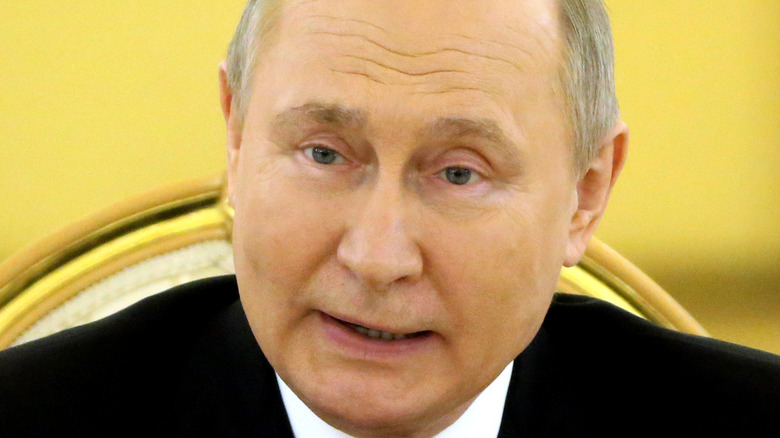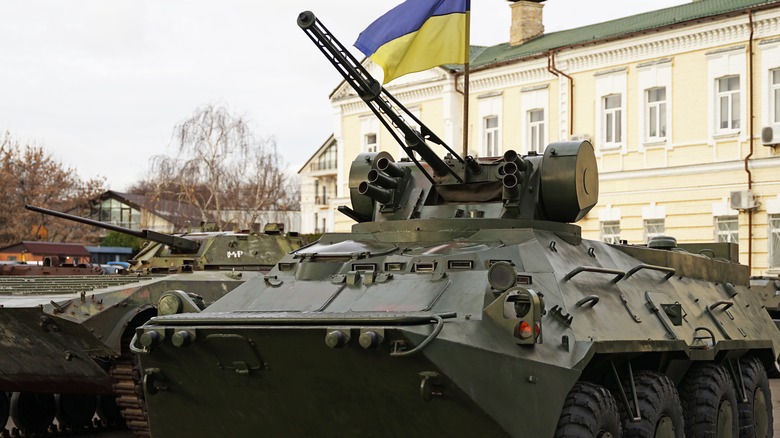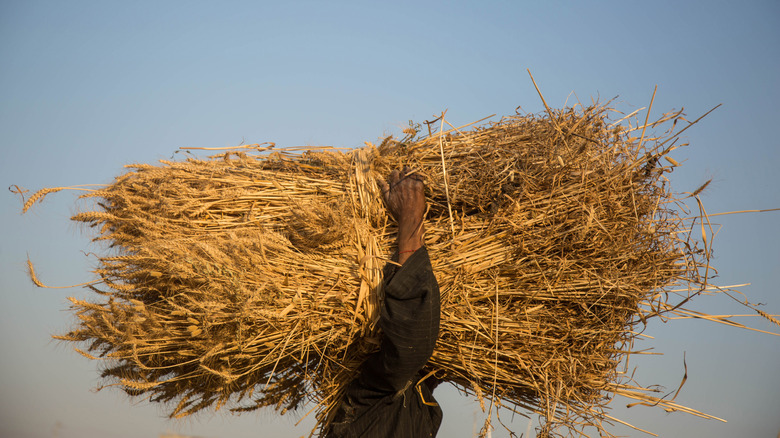Why Russia Denies Any Role In The Ongoing Global Food Crisis
In the face of rapidly rising wheat prices that have compounded ongoing pandemic food shortages, Russia — which has been responsible for obstructing the export of a large portion of the world's wheat supply out of Ukraine — is placing the blame for the growing food crisis on Western leaders.
In March, the World Bank issued a dire warning about ongoing global food shortages, predicting there could be a 37% hike in food prices in the near future (via BBC). Earlier this month, this growing crisis, which puts the world's most vulnerable populations at an increased risk of widespread famine and malnutrition, prompted a group of global financial institutions to create a multi-billion dollar plan for helping at-risk nations and communities cope with the food scarcity epidemic.
According to the U.S. State Department, an estimated 193 million people globally experienced acute food insecurity in 2021, a 40 million-person increase from the year before. Now, tens of millions of additional people are expected to fall into the food-insecure category due to rising costs (via Al Jazeera). In March alone, food prices rose by 13%, to a new 60-year high (via BBC).
Russian blockades of Ukrainian ports have halted exports
According to financial experts, one of the driving forces behind the ongoing food shortages is the Russian invasion of Ukraine, which has put much of the world's wheat supply in jeopardy. Russia and Ukraine produce about a third of the world's total wheat supply, in addition to large amounts of grains like corn and barley. Russia is also a major source for fertilizer around the world (fertilizer prices have recently risen by up to 40%), while Ukraine supplied nearly half of the world's sunflower oil, a key ingredient in vegetable oil (via The New York Times).
Despite overwhelming evidence that the war in Ukraine has been a major driver of global price increases, the Russian government has pushed back on this claim, denying responsibility for the global food crisis. According to Fortune, top Russian officials have asserted that their invasion of Ukraine — and ongoing blockades of the occupied nation's trade ports — hasn't contributed significantly to the global food crisis.
"We are not the source of the problem. The source of the problem that leads to world hunger are those who imposed sanctions against us, and the sanctions themselves," said Kremlin press secretary Dmitry Peskov, referencing sweeping financial and trade sanctions levied against Russia by Western trade partners like the United States (via BBC).
Wheat prices have soared as a result of the Russian invasion of Ukraine
While the export of agricultural products from Russia has continued throughout the war, the country's obstruction of Ukrainian seaports, train lines, and roads has resulted in minimal food being exported from Ukraine, including staggering amounts of grains and oils.
"It is certainly clear that Ukraine's exports are being seriously constrained by warfare and shipping disruptions," said Patrick Westhoff, director of the University of Missouri's Food and Agricultural Policy Research Institute (via Fortune).
According to Robb MacKie, president and CEO of the American Bankers Association, the longer the war continues, the more dire the food shortage crisis will become. "Depending on how this comes out and how long it goes, wheat farmers [in Ukraine] may not be able to plant spring wheat, corn and other things. So, they might go a year without any crops," MacKie told CNN.
Despite this evidence, Russia — which is expected to export 39 million tons of wheat next year, on pace with past years — remains firm that the blame should be put on Western sanctions, not their own military actions. Meanwhile, farmers, distributors, and exporters across Ukraine continue to find themselves, and their products, stuck in limbo with no relief in sight.


